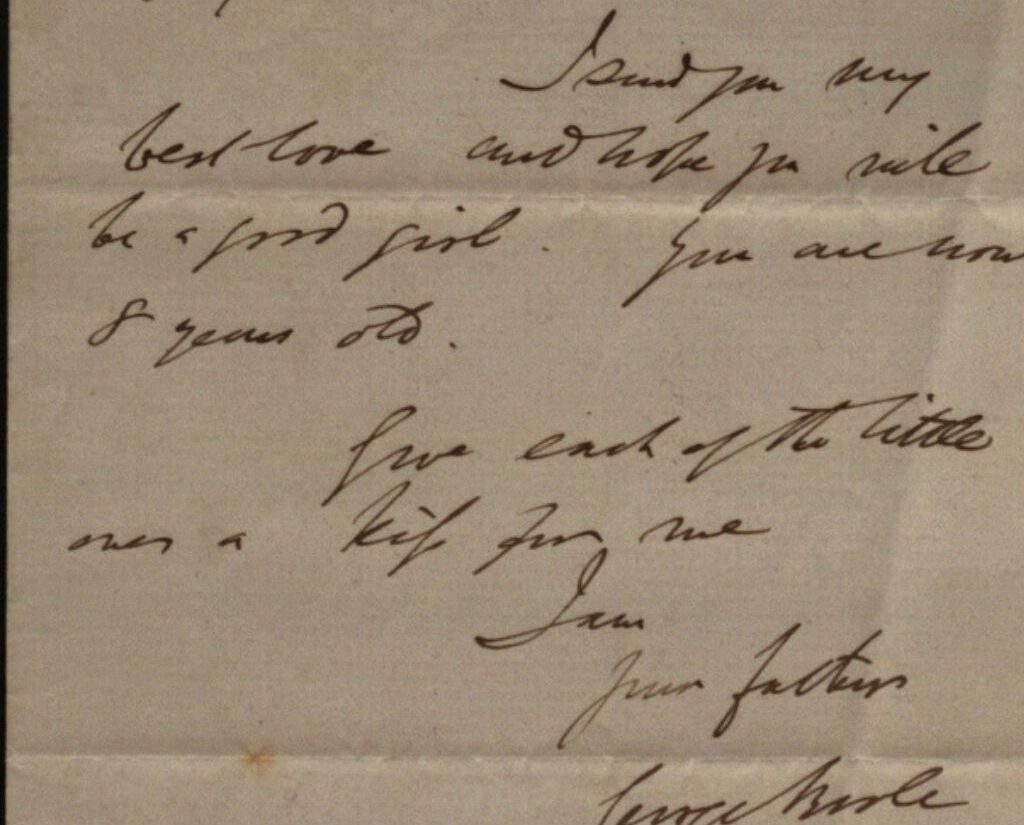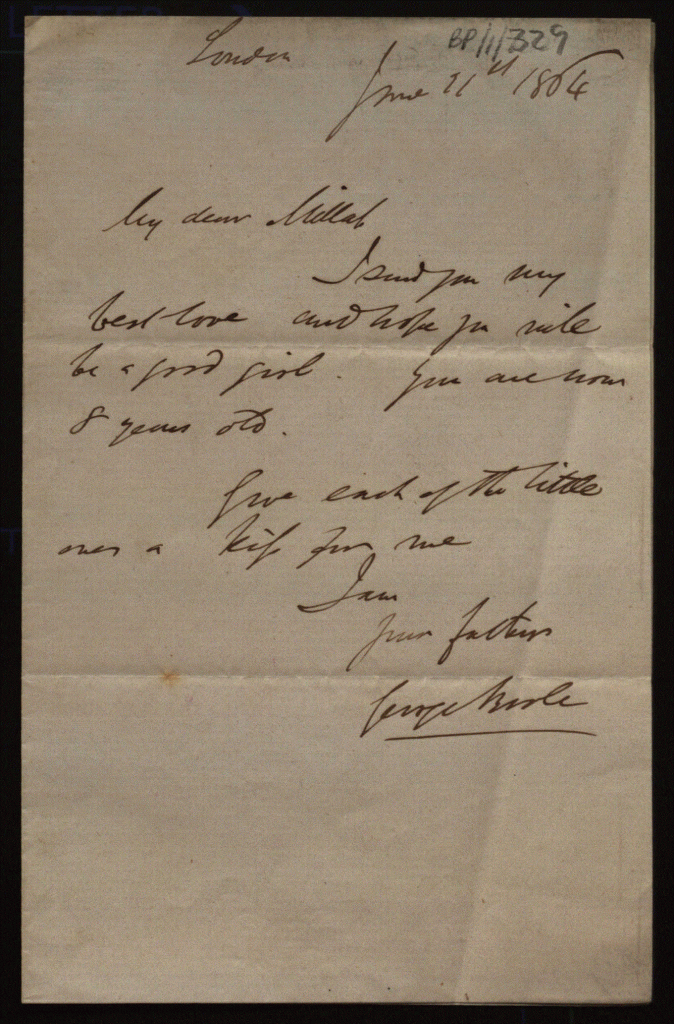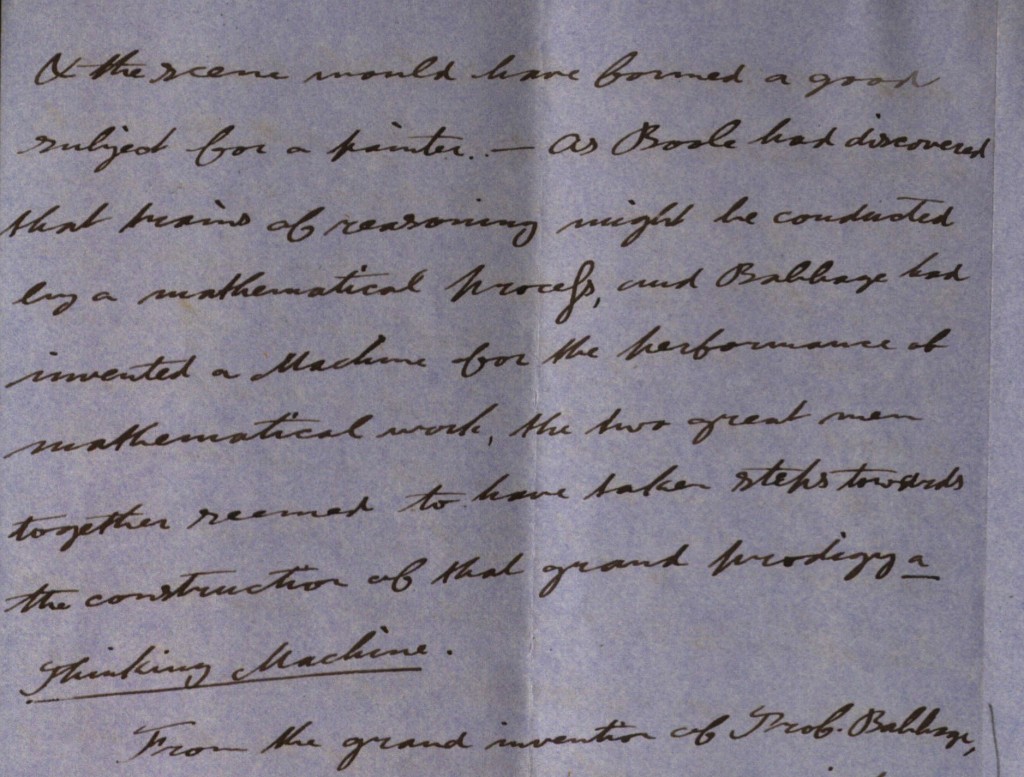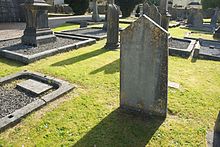George Boole’s untimely death
- codoibhlin
- December 8, 2014

George Boole died in Cork on the 8th December 1864 following a short illness. On the 24th November 1864 Boole was caught in heavy rain on his way from his house in Ballintemple to lectures at Queens College, a distance of approximately 3 miles. Instead of changing his clothes, he continued teaching through the day, and subsequently caught pneumonia from which he did not recover. Boole’s death certificate gives the certified cause of death as pleuro-pneumonia and gives the duration of the illness as 17 to 19 days. (See The Life and Work of George Boole by Des McHale, p 273-277).
Boole was buried in the churchyard of St. Michael’s Church of Ireland, Blackrock, Cork on the 12 December 1864. A few yards from the gravestone there is also a marble tablet placed there by his wife which pays the following tribute:
“To the memory of George Boole, LLD, DCL, FRS, Cork, in whom the highest order of intellect cultivated by unwearied industry produced the fruits of deep humility and childlike trust. He was born in Lincoln on the 2 Nov. 1815 and died at Ballintemple on 8 Dec. 1864. For ever O Lord Thy word is settled in Heaven.”
There are not many letters in the UCC Collection from the later years of Boole’s life. One of the last is a tender letter to his daughter Mary Ellen, written from London on 11 June 1864:

“I send you my best love and hope that you will be a good girl. You are now 8 years old. Give each of the little ones a kiss for me. I am your father George Boole.”
Following Boole’s death his family received many letters of sympathy from friends and associates of the great man. One of these came from Joseph Hill who Boole had visited earlier in September 1863. Hill’s letter recalls the meeting of George Boole and Charles Babbage at the Great Exhibition of 1851 in London, a meeting which must surely be one of the most remarkable encounters of the mid-nineteenth century. Hill recounts:

“As Boole had discovered that means of reasoning might be conducted by a mathematical process, and Babbage had invented a machine for the performance of mathematical work, the two great men together seemed to have taken steps towards the construction of that great prodigy a Thinking Machine‘.
The Life and Work of George Boole by Professor Emeritus Desmond MacHale has just been published as part of the UCC George Boole 200 celebrations and is available from the UCC Visitor Centre and all major booksellers. UCC marks the 150th anniversary of Boole’s death with a Choral Evensong in St. Michaels’s Church of Ireland, Blackrock on the 8th December 2014.

